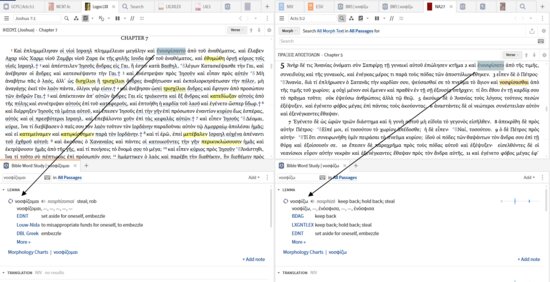Various commentaries make the point that the same word is used in Joshua 7:1 (LXX) as in Acts 5:2 - such as:
Achan’s act of taking from the devoted thing, as imputed to the children of Israel, is by the LXX described by the same word, ἐνοσφίσαντο, kept back, as that which designates the sin of Ananias (Acts 5:2).
George F. Genung, Joshua (The American Baptist Publication Society, 1931), 38.
Acts 5:2 has:
καὶ ἐνοσφίσατο ἀπὸ τῆς τιμῆς
Eberhard Nestle et al., The Greek New Testament, 27th ed. (Stuttgart: Deutsche Bibelgesellschaft, 1993), Ac 5:2.
but the word in the LXX is different:
καὶ ἐνοσφίσαντο ἀπὸ τοῦ ἀναθέματος
Septuaginta: With Morphology, electronic ed. (Stuttgart: Deutsche Bibelgesellschaft, 1979), Jos 7:1.
Running BWS Guides on each of them show that the lemma is different:

Can anyone shed any light on this?
I am sure I am missing something but I don't know what!
Thanks, Graham